Shaochen Han
Generalization in Deep RL for TSP Problems via Equivariance and Local Search
Oct 07, 2021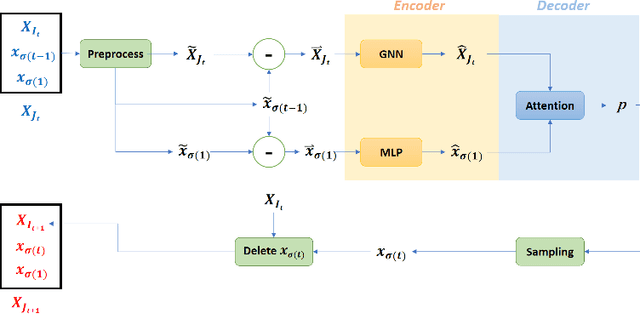
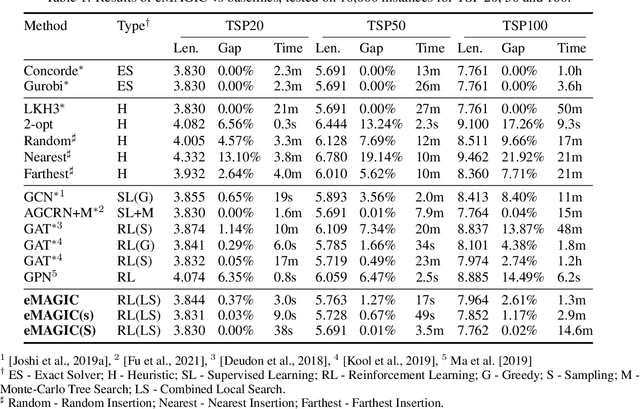
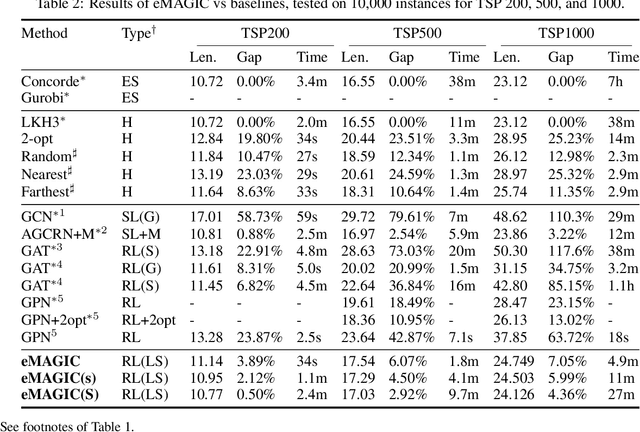

Abstract:Deep reinforcement learning (RL) has proved to be a competitive heuristic for solving small-sized instances of traveling salesman problems (TSP), but its performance on larger-sized instances is insufficient. Since training on large instances is impractical, we design a novel deep RL approach with a focus on generalizability. Our proposition consisting of a simple deep learning architecture that learns with novel RL training techniques, exploits two main ideas. First, we exploit equivariance to facilitate training. Second, we interleave efficient local search heuristics with the usual RL training to smooth the value landscape. In order to validate the whole approach, we empirically evaluate our proposition on random and realistic TSP problems against relevant state-of-the-art deep RL methods. Moreover, we present an ablation study to understand the contribution of each of its component
Improving Generalization of Deep Reinforcement Learning-based TSP Solvers
Oct 06, 2021

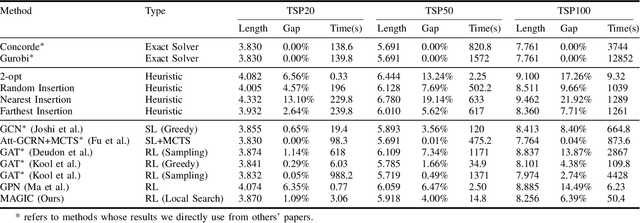
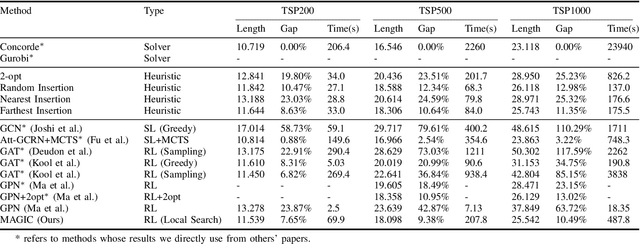
Abstract:Recent work applying deep reinforcement learning (DRL) to solve traveling salesman problems (TSP) has shown that DRL-based solvers can be fast and competitive with TSP heuristics for small instances, but do not generalize well to larger instances. In this work, we propose a novel approach named MAGIC that includes a deep learning architecture and a DRL training method. Our architecture, which integrates a multilayer perceptron, a graph neural network, and an attention model, defines a stochastic policy that sequentially generates a TSP solution. Our training method includes several innovations: (1) we interleave DRL policy gradient updates with local search (using a new local search technique), (2) we use a novel simple baseline, and (3) we apply curriculum learning. Finally, we empirically demonstrate that MAGIC is superior to other DRL-based methods on random TSP instances, both in terms of performance and generalizability. Moreover, our method compares favorably against TSP heuristics and other state-of-the-art approach in terms of performance and computational time.
 Add to Chrome
Add to Chrome Add to Firefox
Add to Firefox Add to Edge
Add to Edge